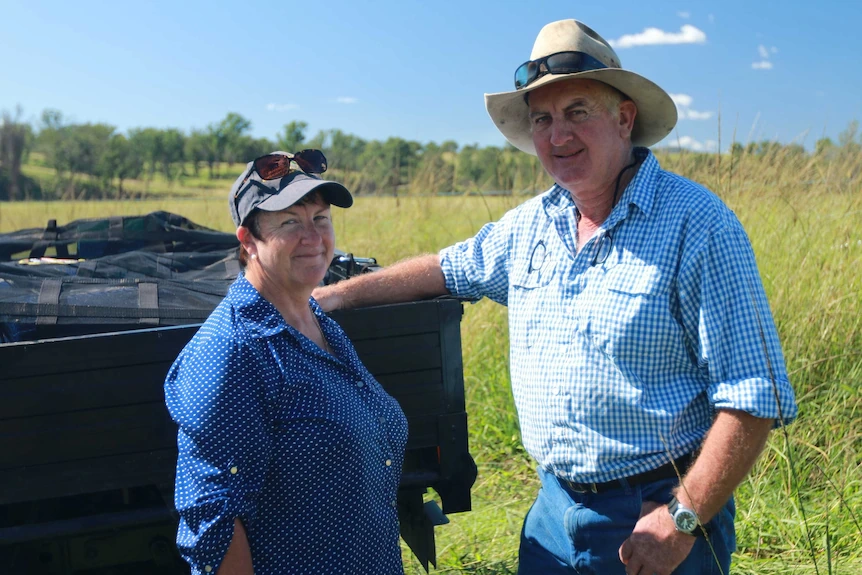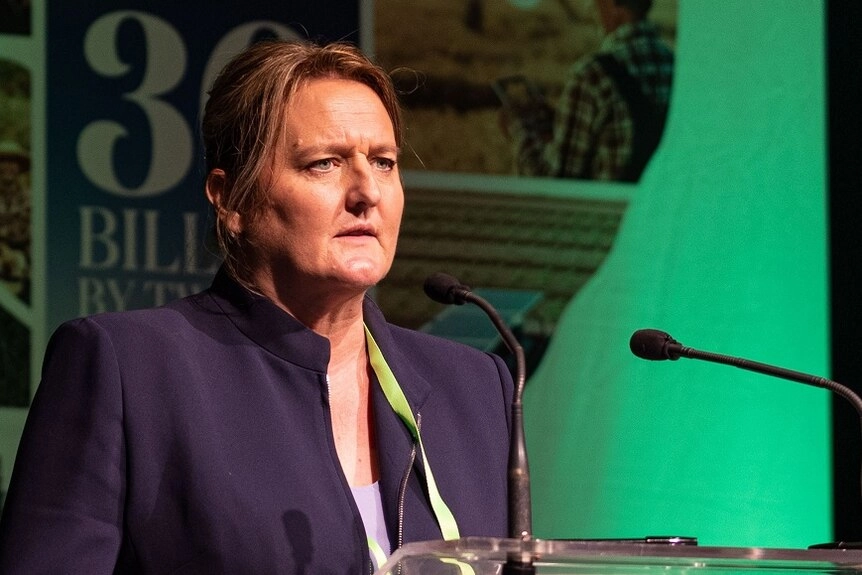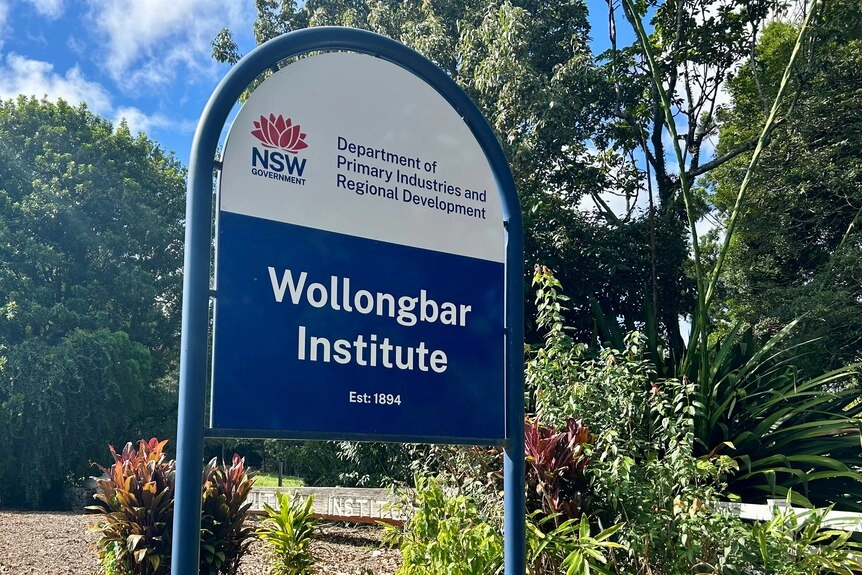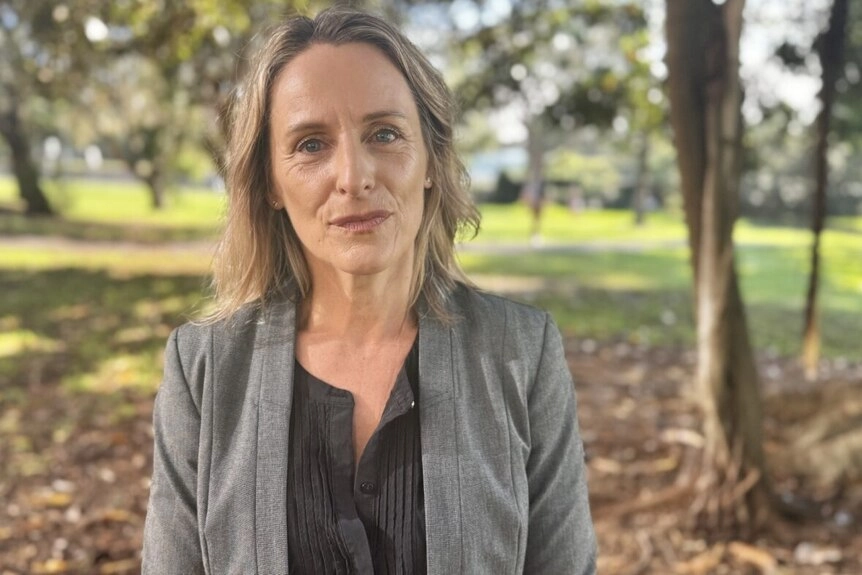Farmers fear proposed cuts to research and development roles at the NSW Department of Primary Industries and Regional Development (DPIRD) could leave the state vulnerable to biosecurity and climate threats.
The NSW government on Tuesday announced plans to cut 165 jobs from the department, equating to a 4 per cent reduction in staff.
The Public Service Association (PSA) told the ABC 55 of those jobs would be from the DPIRD's agriculture and biosecurity teams.
Farmers in the north of the state are concerned the cuts will leave the agriculture industry open to biosecurity threats at a state and federal level.
Toorooka cattle farmer David Duff pointed to biosecurity issues producers were already facing.
"We've had varroa mite, we've had tropical soda apple and we've got red fire ants that are on the march over the border down into New South Wales," he said.

David Duff says research roles are crucial as NSW faces increasing biosecurity threats. (ABC News)
"If you haven't got the staff on the ground to be able to implement biosecurity measures when we have outbreaks of whatever it is, the consequences to primary industry production are massive, and then to the country."
Mr Duff said safeguarding the agriculture industry needed to be a priority.
"We produce the food and the fibre that keeps the state going and we need to protect that as much as we can,"he said.
'Vital' time for strong biosecurity
Moree-based NSW Farmers Association vice president Rebecca Reardon said the job cuts were a "short-sighted" move and fewer boots on the ground could be "devastating" for biosecurity in the state.
"We've got so many challenges in agriculture around climate change, input costs, biosecurity threats, pressure to decrease emissions, productivity issues that to cut back on research when we're aiming to be a $30 billion output industry just seems very short-sighted on the government's part," Ms Reardon said.

Rebecca Reardon has described the cuts as "short-sighted." (Supplied: NSW Farmers Association)
She said with threats such as lumpy skin disease and mad cow disease "on the back doorstep," maintaining strong biosecurity was vital.
"Any savings they make by cutting staff and those on the ground, well they'll be blown out of the water if we have one of these incursions," Ms Reardon said.
DPIRD secretary Steve Orr previously told the ABC the job cuts were set to affect roles that were made permanent despite only having temporary funding, back office administrative roles and duplicate management positions across several divisions.
He said there would not be an impact on frontline services offered by the department.
Lab relocation criticised
The Wollongbar Primary Industries Institute will be significantly impacted by the cuts with the closure of its environmental lab, which tests soil and water quality following floods and fires.
The DPIRD confirmed on Thursday all 13 jobs at the institute's environmental lab would be lost.
"This commercial lab has an annual operating loss for the last four years," a DPIRD spokesperson said in a statement.
"Importantly there are alternative local service providers who can undertake all the required work and offer competitive rates and an expanded selection of services."
Earlier this week, a DPIRD spokesperson said there would be no changes to its office locations and all impacted staff would have the opportunity to be redeployed across the department or other parts of the NSW public service.

Wollongbar Primary Industries Institute would be significantly impacted by the cuts. (ABC Rural: Kim Honan)
The union said the planned relocation of the environment lab, from northern NSW to Wagga Wagga in the state's south-west, would complicate the redeployment of its staff.
The DPIRD said no jobs from the lab would be relocated to Wagga Wagga, but outstanding contracts would be.
"If at the time the commercial lab ceases operations and there are contracts still needing to be completed, they will be transferred to the department's Wagga Wagga lab," the spokesperson said.
Greens MP and rice farmer Sue Higginson said she had seen firsthand the research and development work conducted at the site.

Greens MP and rice farmer Sue Higginson says the Wollongbar lab's jobs are vital to the industry. (ABC News: Nick Dole)
"We can't afford any job losses in our region right now, particularly ones that are doing this kind of deeper scientific research about how to build our resilience, how to understand our changing climate and how we adapt," she said.
The ABC has contacted the NSW Agriculture Minister Tara Moriarty and Lismore MP Janelle Saffin for comment.
Mr Orr was also contacted for further comment.




